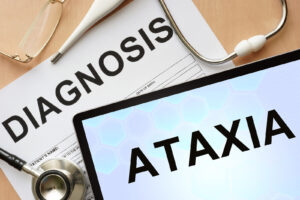7 Facts for National Ataxia Awareness Day

Home Care Assistance in Manalapan NJ
Only last year was Ataxia Awareness Day approved with Senate Resolution 339. If you’re not sure what ataxia is, it’s understandable as it’s not a common disease. Here are seven facts to know about ataxia.
Ataxia Is a Rare Neurological Disease
Ataxia is not common. It’s estimated that no more than 20,000 have Spinocerebellar ataxia, which is a genetic version. Friedreich ataxia is the most common form and affects about 1 out of 50,000 people, but it appears in childhood and is less likely to suddenly appear in old age.
It Can Be Hereditary
Some forms of ataxia are hereditary. Others appear randomly and are known as acquired ataxia. If your parent has ataxia, you have a 50% chance of inheriting the gene. If your dad is diagnosed with ataxia, you should also get checked.
Get to Know the Symptoms
What are the symptoms of ataxia? The list is pretty long and includes:
- Dizziness
- Gait problems/difficulty walking
- Heart issues
- Issues with eye movements
- Loss of fine motor skills and coordination
- Muscle cramps and tremors
- Problems swallowing and eating
- Speech issues
Many people with ataxia can appear drunk, though they’re not. It’s caused by a deterioration of the cerebellum.
Symptoms Can Worsen Over Decades Rather Than Years
Many chronic health conditions worsen over months or years. Ataxia worsens over decades, so your dad’s life may slowly decline for much longer. It’s important that he has caregivers to help with mobility, transportation, medication reminders, meals, and housekeeping throughout this period.
Ataxia Can Occur With Other Health Issues
Ataxia may appear after a stroke or head injury. If it appears suddenly, you should get your dad to a medical professional to determine if he’s suffered a stroke, fell and hit his head, or has MS. The treatment plans for those will differ.
Treatments Often Involve a Series of Medications and Therapies
In addition to physical, speech, and occupational therapies, your dad will likely take a variety of medications to help stabilize his mood and help with the symptoms. People with ataxia often take antidepressants, medications that help with muscle tremors, anti-seizure medications, and medications that help prevent dizzy spells. He may also be put on medications to help prevent painful muscle cramps.
Mobility Aids Are Usually Required
As mobility declines, walkers, canes, and wheelchairs become necessary. Make sure your dad’s home is designed in advance of his need for mobility assistance.
If your dad is experiencing ataxia, it’s important to arrange home care assistance. Don’t leave him alone to struggle with mobility, housekeeping, and meals. He may need someone to drive him and help him keep track of appointments. Home care assistance services are a great way to support his goal for independence while dealing with this disease.
Sources:
https://www.congress.gov/bill/117th-congress/senate-resolution/339
https://www.ataxia.org/what-is-ataxia/
https://www.ninds.nih.gov/friedreich-ataxia-fact-sheet
If you or an aging loved one is considering home care assistance in Manalapan, NJ, please contact the caring staff at Care Street Home Care today. Call (732) 607-8870.
- Signs Your Senior Parent Needs Home Care Assistance - January 17, 2025
- Hearing Rehabilitation: Empowering Seniors for Better Living - January 10, 2025
- Understanding How Cartilage Changes Over the Years - January 3, 2025
